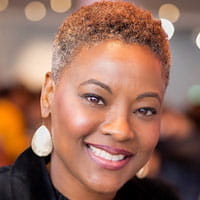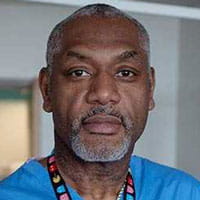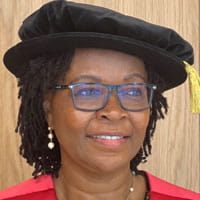Black surgeons reflect on diversity in medicine
13 Oct 2021
To celebrate Black History Month, we are profiling some of our fellows from past and present. These remarkable people have made history in their own way, by becoming the first woman from Jamaica to gain an FRCS, or the first black female orthopaedic surgeon in Britain.
Collectively they have contributed to black history within medicine and society, and inspired others to enter a career in surgery. Black fellows are featured in our Plarr’s Lives of the Fellows highlight reel. And below we asked black surgeons what they thought about our diversity Action Plan.

Miss Samantha Tross
Samantha is an orthopaedic consultant and the first black woman to become an orthopaedic surgeon in Britain. She was a panel member on our independent diversity review.Miss Samantha Tross
I commend the College for taking the bold step of setting up the Kennedy Review panel, as well as wholeheartedly accepting the panel’s recommendations. Frankly, this review is long overdue. The College has lagged behind in addressing issues of diversity and inclusion but once the recommendations are implemented, this will change.
Black surgeons remain in the minority in surgery, particularly black women. Despite a previous black president, Lord Bernard Ribeiro, the number of black people previously or currently being appointed into College roles is very, very small. This is partly because many never felt they would be successful if they applied due to the ethnic make-up and gender of those occupying most roles. There are also fewer black surgeons available to apply for these roles because of the various bottlenecks to opportunities during training and consultant appointments.
The plans for research grants to investigate issues pertaining to diversity and inclusion, funding of grassroot organisations, setting up mentorship programmes, working closely with medical schools and black medical organisations, introducing transparent selection processes where feedback is mandatory to unsuccessful candidates for all surgical roles, robust data collection and regular review of all initiatives set up to ensure they are fit for purpose, will help address the current imbalance.
However, changes are likely to be very slow unless some positive affirmative action is taken to fill College roles. Long-term sustained change will require partnership and hard work from everyone in the surgical community to create a culture of belonging. We can increase the diversity and include people in initiatives but to see effective change, there must be that sense of belonging created. When someone feels they belong, they fully relax, be creative and productive at their full potential. I am optimistic about the future of the College and plan to contribute where I can to achieve the change we need.
Watch Samantha’s video on what Black History Month means to her on our Instagram.

Mr Martin Griffiths
Martin is a consultant vascular and trauma surgeon. He was appointed the NHS’s first national clinical director for violence reduction and his work on tackling knife crime saw him awarded a CBE in 2021.Mr Martin Griffiths
Black History Month is a challenging yet uplifting time for me.
It’s a time to give thanks for the sacrifices of others, who achieved so much against insurmountable odds; to acknowledge the examples set by icons and colleagues within and without the health sector; and to recognise the support of so many allies who guided and empowered me on my personal journey.
It’s also a time for me to question what I'm doing to live the values I champion, and what more can be done to make the career I love attractive to all.
However, as we celebrate the achievements of so many unsung people of colour, there is still much work to do.
The Kennedy Review describes the enormity of the challenge to address the disparities in the experiences of ethnic minorities within surgical training and practice, articulating a 16-point plan to address this imbalance.
The College's Action Plan sets out an ambitious yet considered agenda for change that recognises the drivers and opportunities to ensure that we train and promote the entirety of our surgical community.
It’s my hope that we can make a surgical career the most desirable and achievable of medical careers and attract those wishing to flourish in an environment that promotes and celebrates the diversity of its workforce.
We now have an opportunity to harness our combined energies to challenge an outdated narrative, reframe our practice, and work towards creating a culture that champions agency and empowerment for all.
Watch Martin’s video on what Black History Month means to him on our Instagram.

Mrs Dorothy Kufeji
Dorothy is a paediatric surgeon and our Regional Director. She engages with members on behalf of the College and undertakes outreach to broaden the appeal of a career in surgery.Mrs Dorothy Kufeji
Black History Month has taken on more significance for me each year as the world continues to change and we all have to face new challenges.
It is not simply about going back in history to dig up the wonderful contributions of black people in every sphere of life that have been deliberately suppressed and forgotten. It is also about ensuring that the achievements of black people everywhere, particularly in medicine and surgery, are properly recognised and documented for posterity, and that black surgeons are given an enabling environment to contribute to College activities.
I commend the president and the College for commissioning the Kennedy Review. Difficult as the findings may be to read, they are real-life experiences and struggles of black surgeons (and surgeons from minority backgrounds) in this country.
The Action Plan is most welcome and I hope it will continue to be front and centre of the College agenda. The declaration ‘to put diversity at the heart of College strategy’ must be backed by visible, sustained action with measurable outcomes and accountability. The actions taken so far make me hopeful that we are on the path to real change for the better.
If we are to change the culture of inequality, discrimination and unfairness in surgery, then we must continue to involve a diverse group of surgeons across the board in executing the Action Plan. As regional director, I am working with teams across my region and encouraging all surgeons to get involved.
We must keep the momentum and make it clear to all who have a genuine interest in surgery that they are welcome irrespective of their background.
Often, all that people who put themselves forward are asking is for a chance to contribute to the common good. An inclusive, diverse College where all are treated fairly and equally will be so much richer and better equipped to meet the challenges of the future.
